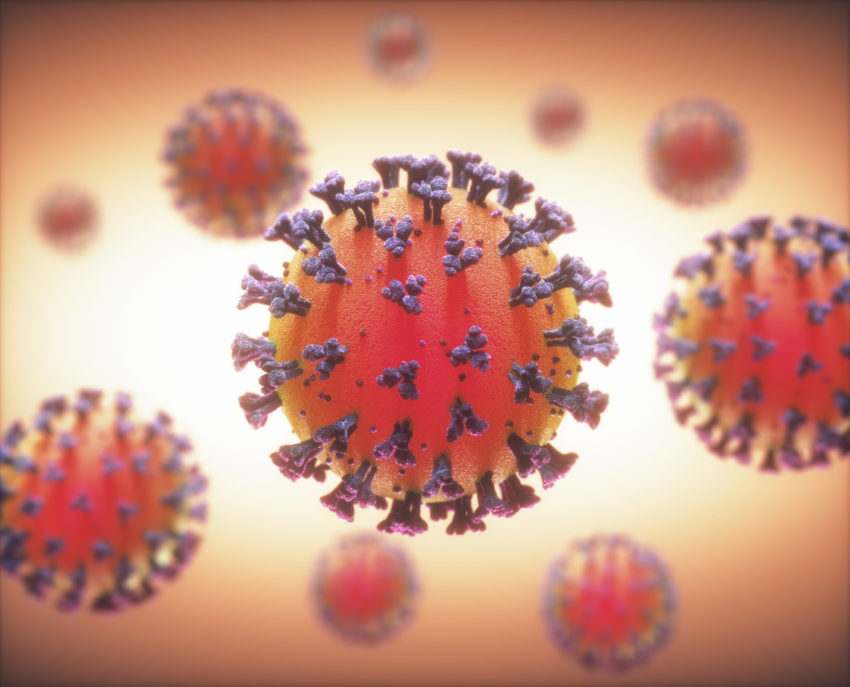A large, multi-site study funded by the National Institutes of Health aims to test the effectiveness of three existing drugs, including controversial ivermectin, to treat the symptoms of COVID-19. Known as ACTIV-6, the study is now underway at the UT Health San Antonio location, led by Thomas Patterson, MD, FACP, FIDSA, professor and chief of the Division of Infectious Diseases in the Department of Medicine.
The randomized, placebo-controlled study aims to find treatment options that can be self-administered by those with mild to moderate symptoms of COVID-19 who are not sick enough to go to the hospital.
“All of the drugs we’re looking at are what we call repurposed drugs. In other words, they’re already approved by the FDA for something else,” Dr. Patterson said. “And the reason we look at those kinds of drugs for use with COVID-19 is to speed up the timeline.”
Dr. Patterson explained that treatment with an antiviral such as remdesivir is effective, but must be given intravenously at the hospital. Brand new compounds specifically created for COVID-19 are in development, but will take a long time to be fully approved and ready for use. So repurposed drugs are perfect for a timely and self-administered solution.
“That’s one of the important features of the trial, it’s really out of the urgency to have safe and effective outpatient treatments for COVID-19,” he said. “These drugs that we’re looking at in ACTIV-6 have benefits against COVID-19, but not necessarily through direct effect on the virus. Most of these drugs will act to boost the immune system and keep people from progressing to severe COVID-19 symptoms and needing to go into the hospital.”
The study will examine ivermectin, an antiparasitic drug; fluticasone, an inhaled steroid commonly used for asthma; and fluvoxamine, a selective serotonin reuptake inhibitor often prescribed for depression or obsessive-compulsive disorder.
There was controversy over ivermectin in recent months due to some people becoming poisoned from misusing the veterinary version of the drug in high doses to self-treat their symptoms. However, Dr. Patterson notes that, while not currently recommended, it remains a drug of interest for its effectiveness in treating COVID-19 symptoms and it is safe in the proper doses.
“Early on there were studies that suggested patients who took ivermectin did better, and now several trials have suggested it’s not effective,” Dr. Patterson said. “There is so little data out there, but that’s the aim here — to test if ivermectin is safe and effective in the doses that we are using.”
He noted the unique, flexible nature of the study. As the trial moves along and a drug isn’t found to be effective, it can be dropped and others added. And if a particular drug is shown to be safe and effective, then it may move forward for approval for use in patients with COVID-19. Participants also can choose which drug or drugs they’d like to be considered for.
The study is also unique in that participating in the trial is completely virtual. After signing up online, participants receive their drugs or placebo in the mail, along with a welcome kit that includes a diary for tracking symptoms, a pulse oximeter and even a $100 gift card after completion of the trial.
The study is aiming to enroll 15,000 patients nationally. With an anticipated surge in COVID-19 cases over the winter, Dr. Patterson said the trial will provide several treatment options for COVID-19 patients. Still, he stressed, the best option is disease prevention.
“The drugs we’re testing are not a replacement for other mitigating strategies, the most important being the vaccine. It’s really important to get the vaccine because most infection is transmitted from unvaccinated people,” Dr. Patterson said. “But when we have a lot of transmission in the community, even vaccinated people end up getting infected. And if you do get sick, then it may be that one of these drugs in the study could be effective. It’s an opportunity for participating patients to possibly receive a treatment that could help them feel better.”
Eligibility criteria to participate in the study include:
- 30 years old or older.
- Tested positive for COVID-19 within the past 10 days.
- Have at least two COVID-19 symptoms for seven days or less. Symptoms include fatigue, difficulty breathing, fever, cough, nausea, vomiting, diarrhea, body aches, chills, headache, sore throat, nasal symptoms and/or new loss of sense of taste or smell.
Those who are eligible and interested in signing up for the study can do so through the ACTIV-6 study website, where they can then indicate an interest in UT Health San Antonio site.


